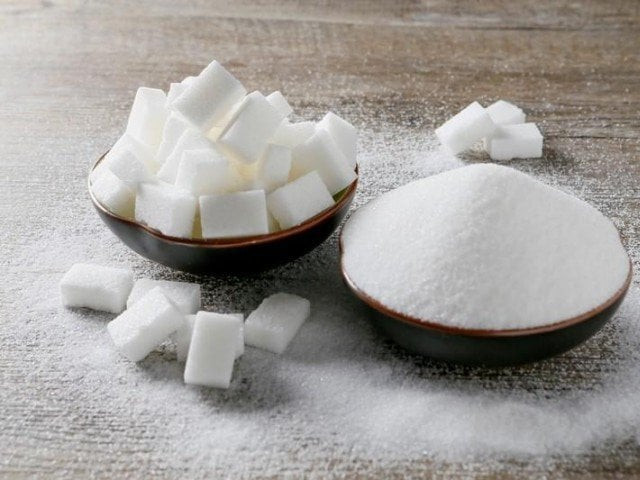A sour deal for economy and democracy
Incentives to sugar lobby are costing country its cotton production

While the Competition Commission of Pakistan (CCP) serves show cause notices on the ‘big sugar’ cartel, it will do little to break the decades-long covert relationship of the political elite with the sugar lobby.
This nexus of electoral politics with the sugar industry not only serves as a vehicle to channel taxpayers’ money from public finances to campaign coffers but also distorts the economics of resource allocation and management.
Moreover, this colluding of the sugar cartel is not unique to Pakistan, but countries like the US and India also exhibit high levels of patronage in politics of sugar production and processing.
In Pakistan, the sugar lobby enjoys political patronage through import tariffs and excessive subsidies since the end of Zia’s era. In the 2000s, the government blocked the setting up of new sugar mills to safeguard vested interests of the political elite under the pretext of protecting cotton crop production.
Under the Punjab Industries (Control on Establishment and Enlargement) Ordinance 1963, the setting up of new sugar mills and enlargement/ relocation of existing mills was banned. This ban helps to keep sugar production low and the domestic sugar price higher.
In collusion with the government, the sugar mills export sugar every now and then despite the fact that their cost of production is way higher than the international market price. The ‘big sugar’ claims to have excess sugar and iterates that it needs to export the leftover stock from last year immediately to release working capital so that growers could be paid on time. The differential costs are then subsidised by taxpayers’ money.
So, the whole exercise results in a double whammy for consumers, who not only bear the cost of export subsidies but also bear a higher price of sugar due to “controlled” domestic supply.
To add insult to the injury, illegal and creative accounting practices are employed to project a higher cost of production. A significant quantity of sugarcane is purchased, crushed and sold off-the-book without paying any GST but its production cost is shown on books to artificially reduce profit and make a case for higher export subsidy.
This “unaccounted-for” stock is often used for executing forward contracts with brokers on the basis of token money. This starts a chain of gambling where the ultimate winners are the sugar mills which make millions in commission. The US sugar programme is another classic government-sponsored cartel, guaranteeing a minimum support price at which the US Department of Agriculture will buy sugar, if needed.
Moreover, it imposes strict production control to keep domestic price higher than minimum levels. Import quota restrictions tend to limit the quantity of foreign sugar entering the US from Brazil and other Central American states at half the cost.
The sugar lobby then keeps Congress convinced to maintain a Soviet-style supply control programme by sharply limiting imports and curtailing domestic production, costing the US consumers around $3.5 billion every year in indirect subsidies to producers.
The big sugar, in return, invests heavily in lobbying and political contribution to maintain the status quo and deter any regulatory oversight.
According to OpenSecrets.org, lobbying firm Ballard Partners hired by the US sugar industry alone contributed around $500,000 to various political causes in 2019. Senators from sugar-producing states such as Minnesota, Michigan and Florida defeat any bill proposing reforms to the centuries-old sugar programme.
An old investigative report, published by the US Commerce Department, found that 85% of senators who received contributions from the sugar lobby voted to keep the price support programme running while all senators who received no contribution voted against the subsidy.
Similar politics of patronage have distorted the sugar industry of India as New Delhi imports sugar despite surplus domestic production. Though India is the world’s second-largest producer of sugar, yet sugarcane growers are often forced to sell their produce at throwaway prices or burn it in protest.
So, the question arises where do all these “sweet” profits go in the end? Into the extravagant electoral campaigns of the political elite!
Chairpersons of sugar mills in India openly contest elections and make use of interest-free loans received from the government for paying farmers to fund their electoral campaigns instead.
Whether it is Pakistan or the US, the sugar lobby is artificially hiking prices to generate election funds.
Pakistan needs to stop incentivising the sugar lobby because besides its politically engineered designs, it is also cannibalising cotton production.
Growers are opting for sugarcane as it brings higher profit, requires less manpower and is resilient against climate change – not to mention the patronage of political elite ensuring favourable water policies.
The growth of sugarcane crop also implies less work opportunities for rural women as they usually work in cotton fields. As a matter of fact, if we account for water costs, deadweight loss and ecological damages caused by a protected sugar industry, it makes no sense to continue subsiding the big sugar at all.
Gains to sugarcane producers are concentrated in a few hands, especially leaders of major political parties, and we will be much well-off to end this protectionist policy, which increases domestic price of sugar above the corresponding world price.
The government should consider terminating the minimum support price programme for the sugar industry, ending all export subsidies and allowing tariff-free import of sugar in order to break the nexus between sugar economics and electoral campaign finance.
The writer is a Cambridge graduate and is working as a strategy consultant
Published in The Express Tribune, November 16th, 2020.
Like Business on Facebook, follow @TribuneBiz on Twitter to stay informed and join in the conversation.



















COMMENTS
Comments are moderated and generally will be posted if they are on-topic and not abusive.
For more information, please see our Comments FAQ